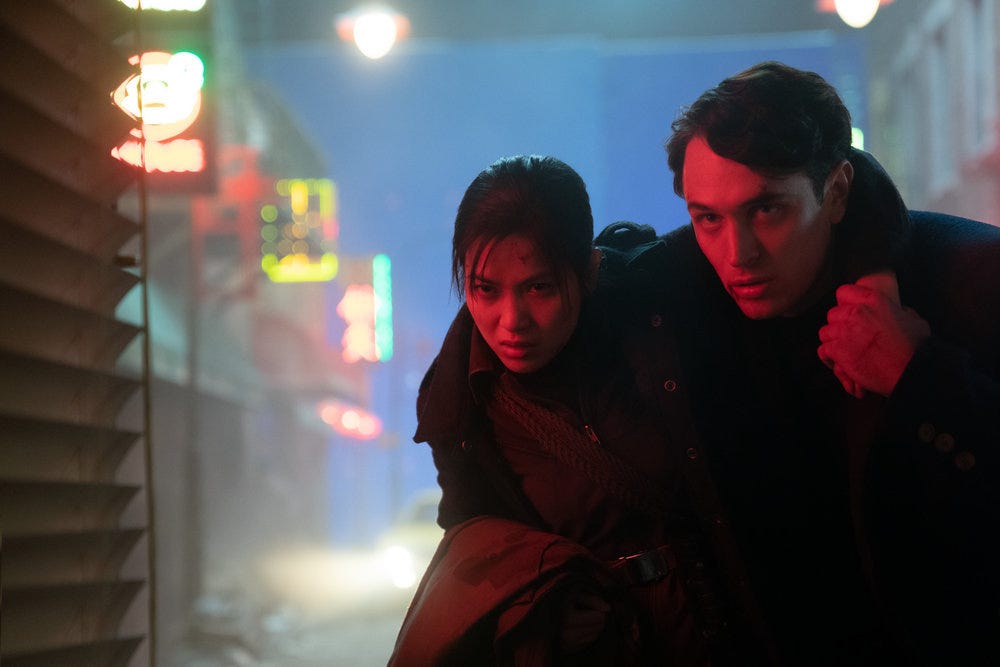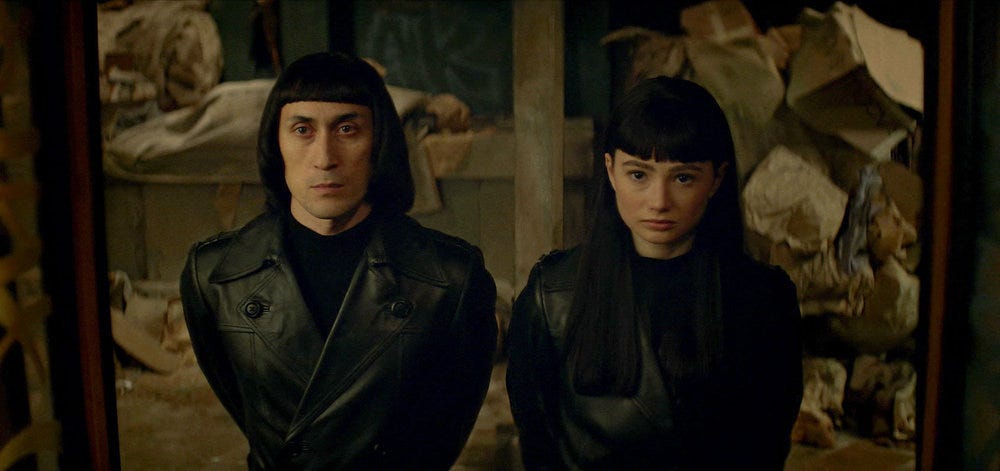
EARLIER THIS WEEK, Lucas Shaw of Bloomberg tweeted, referencing Martin Scorsese’s Killers of the Flower Moon, that you “REALLY need to justify a 3 ½ hour movie” in a world where you can make a shorter movie or a six-hour miniseries instead.
While it’s true that very few movies for a mass audience (meaning The Godfather Part II, as opposed to Sátántangó) justify a runtime of 3.5 hours or more, it’s also true that that’s always been true. It’s a rare thing. You can practically count them on one hand. The innovation here is the rise of streaming and the explosion of hours to fill, leading to numerous series and miniseries and aborted series bobbing through the cultural stream like so much flotsam and jetsam. The question, then, is whether or not the six-hour miniseries is really and truly preferable to the epic individual film.
As luck has it, 2023 has presented us with a fairly compelling test case of that question in the form of the John Wick franchise. Earlier this year we saw the release of John Wick: Chapter 4 and its nearly three-hour (169-minute) runtime. And last week brought the conclusion of epic three-part miniseries The Continental: From the World of John Wick, which debuted a new feature-film-length episode via streaming each Friday for the last three Fridays, totaling nearly four hours (262 minutes). So not quite 3.5 hours versus 6 hours, but close enough: Many people suggested that the fourth chapter of John Wick’s revenge-filled exploits was far too long and many people were excited about a peek behind the curtain into the world built out through that series.
The verdict: The Continental suffers from all the telltale symptoms of the worst kinds of streaming bloat. Imagine a series in which all the action from the original John Wick, a miraculously succinct 101 minutes, is spread out over the course of 4.5 hours, with the action-free gaps filled in with interminable chitchat about the feelings of characters we are never given a very good reason to care about, and you have some sense of what sitting through The Continental is like.
The Continental is nominally the origin story of Winston Scott (Colin Woodell) and how he came to take ownership of the Continental, a hitman hotel-cum-sanctuary. As the show begins, the hotel and all its assets are owned by Cormac O’Connor (Mel Gibson), a bad guy who has used the protection offered by the Continental and the faceless upper echelon of global organized crime, the High Table, to solidify his control over crime in New York City. When Winston’s brother, Frankie (Ben Robson), steals the press that makes the gold coins that serve as currency in the John Wick universe, Cormac tries to strong-arm Winston into helping him recover it before the High Table’s Adjudicator (Katie McGrath) can end Cormac’s reign over New York’s underworld.
That plot synopsis would be perfectly reasonable for a two-hour movie. It is much less reasonable for a show more than double that runtime. And yes, there’s more to it—marvel at the crisis of conscience faced by Charon (Ayomide Adegun), who has to decide whether to back Cormac or Winston; weep at the sadness of Yen (Nhung Kate), Frankie’s bride; pretend to care even a little bit about the dojo run by Lou and Miles Burton (Jessica Allain and Hubert Point-Du Jour) as they fight off the Chinese mob and try to untangle their father’s backstory; desperately struggle to maintain interest in detective KD Silva (Mishel Prada), as she tries to unravel the secrets of the Continental and the Scott brothers—but none of it is in the slightest bit interesting. While the advertisements promised a rumble between legions of weirdly costumed hitmen, we really spend much time with only two of them, “The Twins” Hansel and Gretel (Mark Musashi and Marina Mazepa), who look like Neo from The Matrix Reloaded if he went to Lord Farquaad’s hair stylist:
At a conceptual level, The Continental is fatally flawed because it misunderstands what’s interesting about the worldbuilding of John Wick and its sequels. The backstory of any one individual aside from Wick (Keanu Reeves) himself is deeply unnecessary, and even with Wick we mostly learn about him from the mutterings of others, rumors about deadly pencils, whispers of impossible nights.
No, what’s interesting about the world of John Wick is its disputation on the nature of power, its struggle to divine whence power flows. Does power flow from rules and order and organizations, as represented by the commerce of the gold coins and the High Table with all its talk of adjudicators and deconsecrations and excommunicados? This is where Winston’s power in the films flows from; it’s why he and the Continental matter. There are rules and there are consequences for breaking the rules. Or does power flow from the excellence of the individual, the person who transcends the rules because the people who make the rules cannot control him? This is the sort of power Wick represents and as such, he is a threat to the order: If a man like Wick can exist outside their rules, their rules mean nothing. Anarchy will loose. It’s why Wick, from the perspective of the High Table, has to die.
The frustrating thing about The Continental is that you could carve out of it a decent two-hour film about Cormac and Winston vying to demonstrate who can be of more use to the High Table. Gibson, with his explosions of violence and bouts of Catholicism-inflected ravings, is convincingly feral as Cormac. Hansel and Gretel are amusing villains, though wasted: Mazepa’s hand-to-hand combat against Yen at the end of the season was the single best fight in the whole project, looking something like a Cirque du Soleil version of kung fu, all contortionist bends and Stretch Armstrong physics. After watching that sequence I got viscerally angry Nhung Kate wasn’t in more of the show. Woodell is never thoroughly convincing as a young Ian McShane, who plays Winston in the films, but he’s solid enough.
IN HIS FORTHCOMING BOOK Opposable Thumbs about Gene Siskel and Roger Ebert, Matt Singer notes that “the longer they stayed on the job, the more Siskel and Ebert talked about the hours they felt had been stolen by the movies.” More and more every day this is how I feel about the vast streaming wasteland: the endless hours these apps have to fill have created endless, gushing rivers of mid-tier television. So you’ll hopefully excuse me if I worry a little less about wasting three hours at the theater than I do about having five or six hours of my time stolen by the stream.




